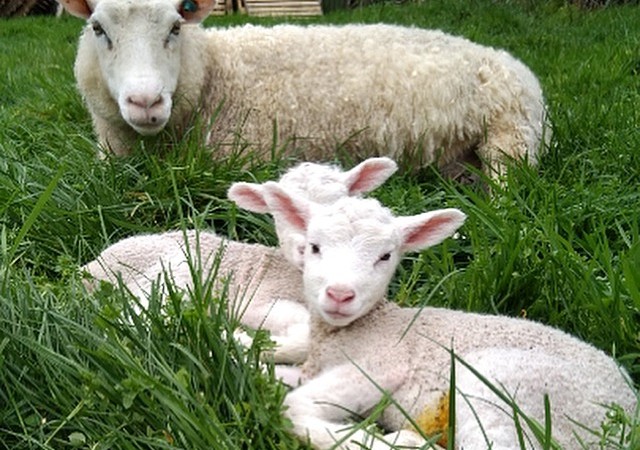

Tetanus is a non-contagious, infectious disease of mammals caused by bacterial toxin characterized by spasmodic contraction of skeletal muscles. Sheep and goats are more susceptible than cattle.
The disease is caused by bacteria known as Clostridium tetani which is remain in the intestine of the herbivorous animals as normal habitat. The organism can be grown under strict anaerobic condition. The spores are very much resistant and can persist in the soil even for years. The spores can be destroyed by boiling at 1150C for 30 to 60 minutes. Vegetative forms can be destroyed by heat and disinfectants but spores are highly resistant to many physical, chemical agents and common disinfectants.
The initial signs consist of restricted movement, muscular stiffness and difficulty in walk, lack of coordination, unusual walking, Prolapse of the third eye lid, head drawn on one side or back ward, pump handle position of the tail, erection of the ears, immobility of the ears and characteristic “saw horse stance” are the features. The rigidity of the facial muscles gives an anxious expression. Death usually occurs in 3-4 days.
General control and preventive measures
Proper vaccination at day old should be used. Giving two doses of vaccine at least four weeks apart. An annual booster dose is recommended.
Tetanus toxoid vaccines at the times of exposure of body tissues to environment prevent the disease occurrence.
Providing passive immunity to the lambs by giving ewes a booster vaccination, a few weeks before lambing commences.
Care of any local wound and make sure the wound is not contaminated by dirt.
Cleanliness and proper hygienic measures are to be adopted at the time of parturition and following parturition.
The animal should not be allowed to graze near barbed wire fencing.
Yards should be watered to decrease dust.
Open method of castration should be discouraged in the village level.
Proper care should be taken to handle the retention of placenta and prolapsed cases.
Sterile surgical instruments are to be used at the time of operation. Wound should be drained with deep incision. The animal should be kept away from metallic and sharp objects.
Hygiene is essential while undertaking any husbandry or surgical procedure.
All out precautions should be taken during castration.
 Contact Jaguza Support
Contact Jaguza Support